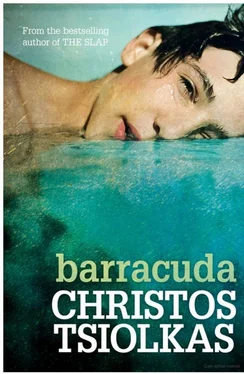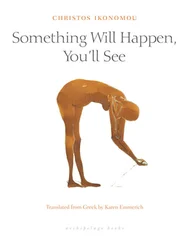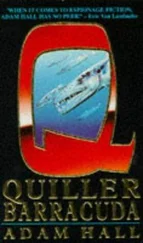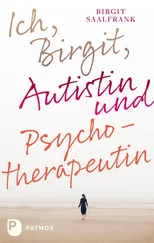I finish my coffee, I walk home, I read one hundred pages of Dostoevsky's The Devils , immersing myself in the nineteenth-century novel, in all its digressions, its cul-de-sacs, its world in which fate determines destiny far more ruthlessly than does choice or desire, where youth is cruel in its creativity and righteousness. I don't want to talk, I don't want to struggle to find words and conversation. I don't want to be in this world. But I will do it for Luke. I will meet this Glaswegian, we will have a coffee, I will be polite and answer his questions about my city. The thought of it brings a smile to my face. I am the last person to ask about what to do and where to go in my town; Luke should have asked Demet. I will put this stranger in contact with her. And then I will have peace.
Once again, I will be safeguarded by my solitude.

The first thing I notice about Clyde is that his accent reminds me of Granddad Bill. There is a similar bass tone and rumble to his voice, the same lilt to his speech. I want to close my eyes, just listen to that voice, masculine, musical and resonant, as if someone just notched up the treble in his voice box by a degree. Then I notice the sparse cadmium hair on his wrists, and it is disconcerting how much I want to lay my fingers there. It has been so long since I touched another's skin.

It took me an age to decide where to meet, as if it were a date. I paced up and down my bedroom, unable to make up my mind. First I thought it should be the city, of course he would want to see the city, it is his first time here. Then I decided against it, as I didn't know where to go in the city. I wondered if it wouldn't be best to meet just down the road from my flat but I quickly decided against that option. It was a train ride out, it was the suburbs; why would he want to see the suburbs? I finally settled on a small cafe in Brunswick where Demet took me a few months ago, a small place so nonchalantly trendy that you have to sit on upturned milk crates, so chic that sitting there hurts your arse. Then I spent a fitful night wondering if I could remember exactly where it was, so first thing the next morning I walked to the internet cafe near my flat and googled a map of Brunswick. I located Demet's house and traced the route we took, where we turned left onto Sydney Road and how far we walked before we took a right. I worked out exactly where the cafe must be.
I texted Clyde the location of where we would meet.
Ten seconds later I got a text back. Cool , it read. Looking forward to it x. I stared at that x for an age, astonished. It seemed so audacious. I didn't dare text back, I could never sign off in that way. x.

Clyde has finished his coffee. There is a chilling wind blowing up the street but he wants to sit outside where he can smoke. I wish I had thought of bringing a scarf. It is spring but winter hasn't yet unwrapped itself from around the city, and I am shivering. A young waitress with Islander tattoos on her arms comes out, picks up our empty glasses, and asks, 'Another?'
Clyde looks across at me. 'Yeah, sure,' I say, 'I'll have another,? and he grins. As she walks back inside I mumble, 'Sorry about the shit weather.'
His answering laugh is as strong and hoarse as my granddad Bill's. He pretends to look at a non-existent wristwatch and says, 'I cannot believe it. A half hour has passed and it is the first mention of weather.' His grin broadens. 'I think I'm going to like you, pal.'
Pal. I like the word, it is unfamiliar but warm. Pal.
We are surrounded by students, girls in op-shop jackets buttoned to the collar, with seventies tinted sunglasses; guys in tight black jeans and Converse sneakers.
'You're all obsessed,' Clyde continues. 'It's such an Aussie trait, to always go on about the weather. That's all they can fucken talk about in Sydney. 'Is it going to be sunny? Can we get a swim in?' It drives me mad.'
What would his chest look like? His nipples?
He tells me how bored he is with Sydney, that it is too white and too stratified and that the brute strength of the ocean scares him. And that it is too full of English people.
What would his legs look like? Would his thighs be solid, would his calves be firm?
And he tells me that he already likes Melbourne, that it is ugly, like Glasgow. He smiles at a young scarfed Turkish woman navigating her pram past the upturned milk crates.
Was his cock thick? Did he still have his foreskin?
What would his sweat taste like?
'My father would agree with you,' I answer. 'He's a truckie, he's driven all over this country and he reckons it is apartheid.'
'And you, do you agree with him?'
The direct question is disconcerting. I know I am blushing. It is a question that has no adequate answer. Of course I agree and of course I don't, there is no possible answer that can encompass the breadth of the continent.
I'm never going to see him again. Fuck him if he can't take a joke. 'You don't get a get-out-of-gaol-free card, mate. You're a European, you pricks caused this mess.'
It is the way he abandons himself to his chuckling that makes my mind up: I like this guy. He laughs so much he nearly falls off his crate. I am aware that everyone around us is staring. I look down.
When I look up, he is eyeing me carefully, appraising me, and it is then that he seems to make a decision.
'I was meant to come over with my partner, we'd been planning it for a year. And then the prick goes off with some Polish twink he met at a disco .' Clyde elongates the word, makes it sound ugly, makes it sound like the most hideous of words. 'So I thought, fuck it, I'm going to go anyway, I'll go to the other end of the world and see if I can forget him. And I woke up this morning and it was drizzling and I was freezing and I looked out the window of the hotel and it was grey and miserable and I realised I couldn't remember the cunt's face. That's when I thought, I'm going to like Melbourne.'
We are silent for a moment, then the coffee arrives and he says, 'So tell me about you.'
Slowly, hesitantly, I begin to talk. About study, about working with men with acquired brain injury. He asks more questions, asks about what Luke was like at school, and says something about how my parents must have worked hard to afford to pay for me to study at such a school.
Then I know that Luke has told him nothing about me, about my scholarship, about my swimming, what I was and what I have done. And I am grateful, but I am also hurt: maybe Luke is ashamed of me. So I don't say anything about my past; instead I tell him about now. I hope that the now is enough.
The waitress returns to collect the empty glasses. Clyde looks down and says, 'I can't really have another.'
'That's OK,' I say. 'I guess I should go.'
Clyde looks right at me, and I notice how grey and certain his eyes are, the rigid line of his nose, the sharp cleft in his chin. He hasn't shaved and there is a smudge of drying coffee at the bottom of his lip. He says, 'Do you want to go out for a drink tonight, Danny? I was going to meet some work people but I'd prefer to have a drink with you.' He says it straight out, no hesitation.
I clear my throat. 'Dan,' I say. 'I prefer to be called Dan.'
'Oh.' He's taken aback.
And I am wondering, do I want to go out for a drink with him? Don't I just want to enjoy my version of a long weekend, walking and reading, lost in my own space, not talking, not seeing, not answering to anyone?
Читать дальше











